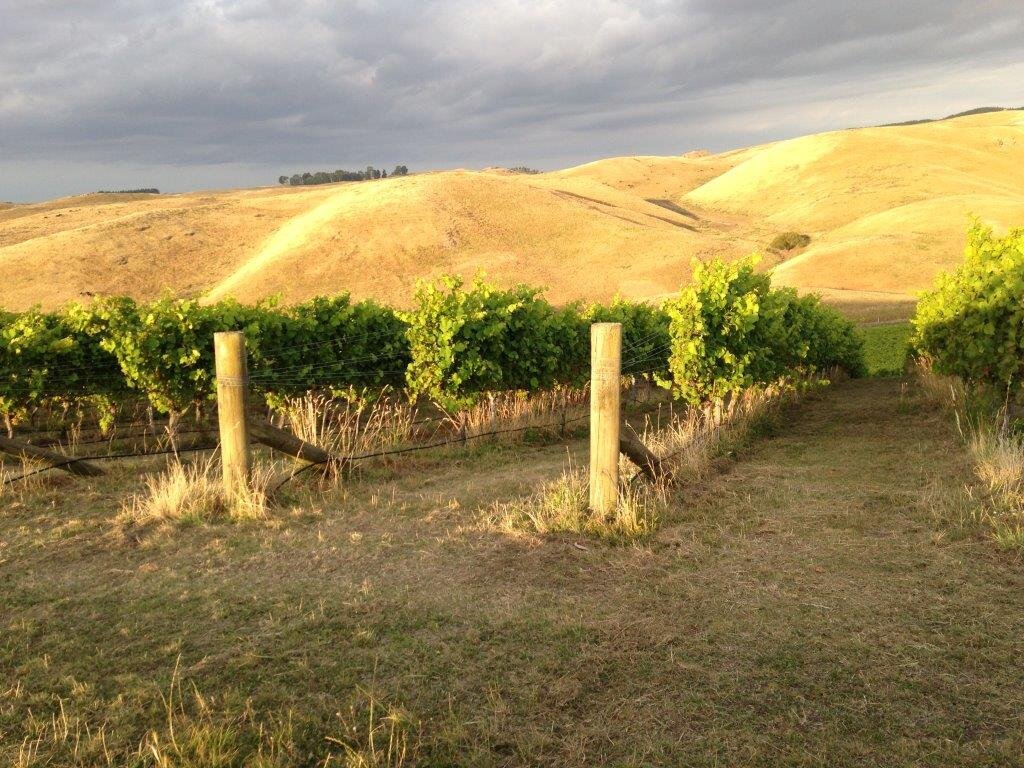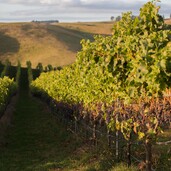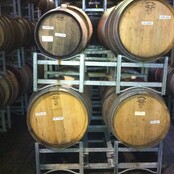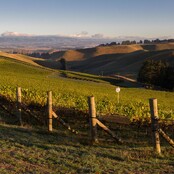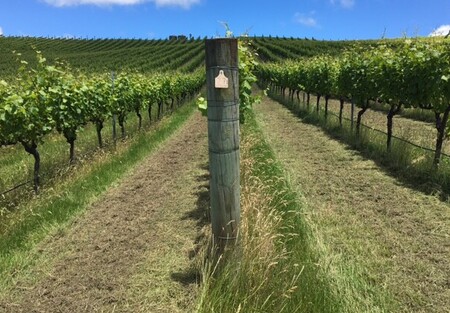Ecological principles
What is minimal disturbance?
Sustainability-No cultivation
Cultivation disturbs the soil's physical structure and can lead to erosion by water down slopes. Under-vine cultivation is frequently practiced by some growers to control weeds, however, disturbance to the soil surface by cultivation provides a niche that favours plant species that are best adapted to utilize and colonize the disturbed area, i.e.more weeds. Cultivation also impacts the micro fauna and flora that forms the soil biota, along with earthworm populations.
We mow close to the vines on one side and leave a strip (0.5m) on the other side to provide habitat for insects. This also water stresses the vine slightly on the un-mown side and simulates regular deficit irrigation (RDI) principles. On the next mow we reverse the process. This helps to confuse the vine that that it is going into a drought and therefore can accelerate fruit concentration. It is a lot cheaper than setting up alternate irrigation lines.
Protective cover
Maintaining a protective vegetation cover at all times protects the soil surface from rain drop impact and erosion. This is essential on all slopes. Deep rooted plants (such as weeds) provide micro-pores in the soil for water infiltration. These plants can also access deeper nutrients and when they die off the nutrients are recycled at the soil surface and provide organic matter. Grazing may result in some of these nutrients being exported from the system, in the form of wool and meat!
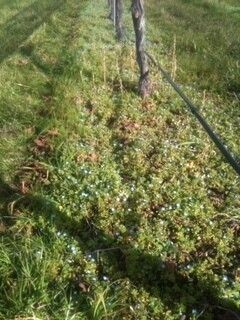
Planting
Planting our vineyard was carried out using a water jet rather than ripping. Cultivation can also impact on earthworm populations and, most importantly, soil mycorrhizae, that are vitally important for capturing nutrients for the vines.
Establishing an equilibrium and maintaining biodiversity
Establishing an equilibrium that is acceptable for sustainable vineyard management; eg scrambling speedwell (Veronica persica) is a prostrate annual that fits in well. Less disturbance helps achieve this to some degree, although the seasonal weather patterns largely determine the dominant species.
Minimal spraying
Not spraying Lime Sulphur. This is deadly on insect life, but was widely used on orchards and vineyards, including organic. It may be an organically acceptable product but the use of this product reduces beneficial insects, as well as less desirable ones, and can upset the ecological balance. Our picking bins are generally full of insect life, with a diverse range of spiders-a good indicator species.
Copper is also an organic spray widely used but is a heavy metal that persists in the environment and can impact on earthworm populations.
Other sprays may also kill off native yeasts that are present on the berries at harvest and recent research indicates that these local yeast strains may be an important component of regional or local wine character.
